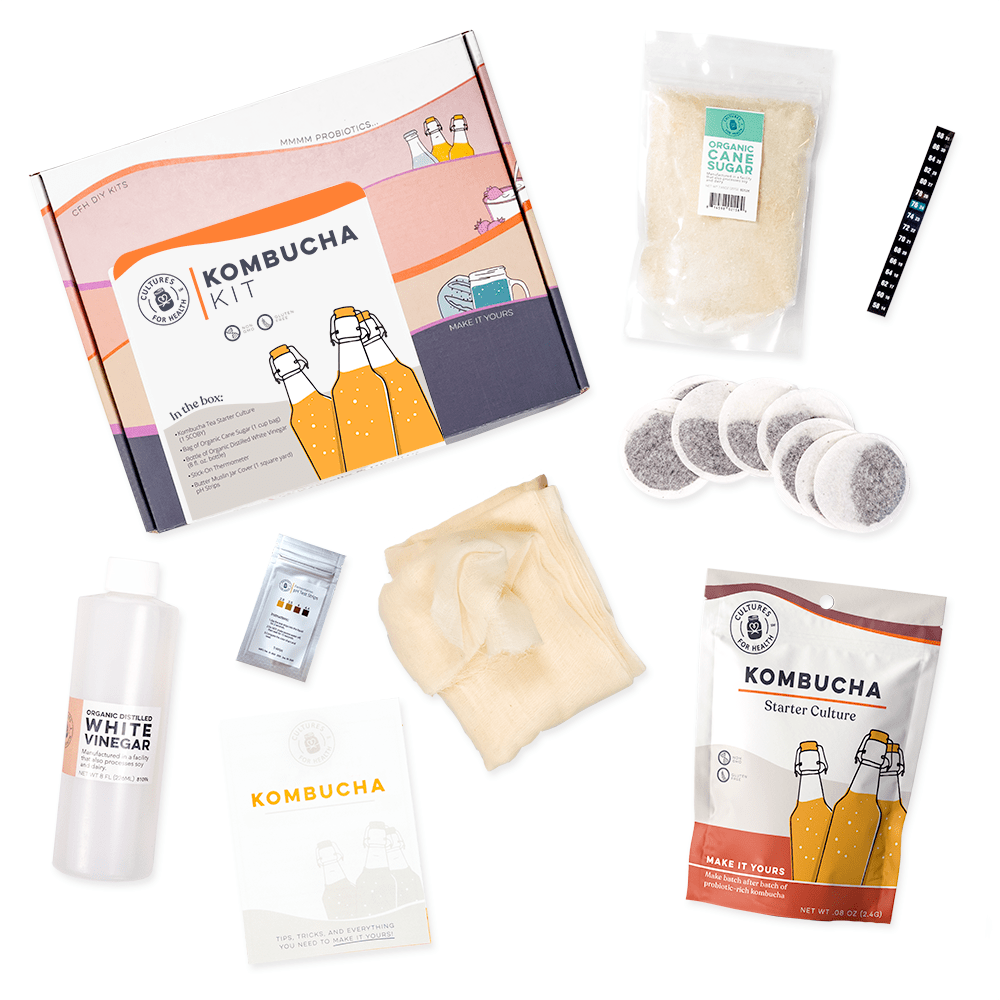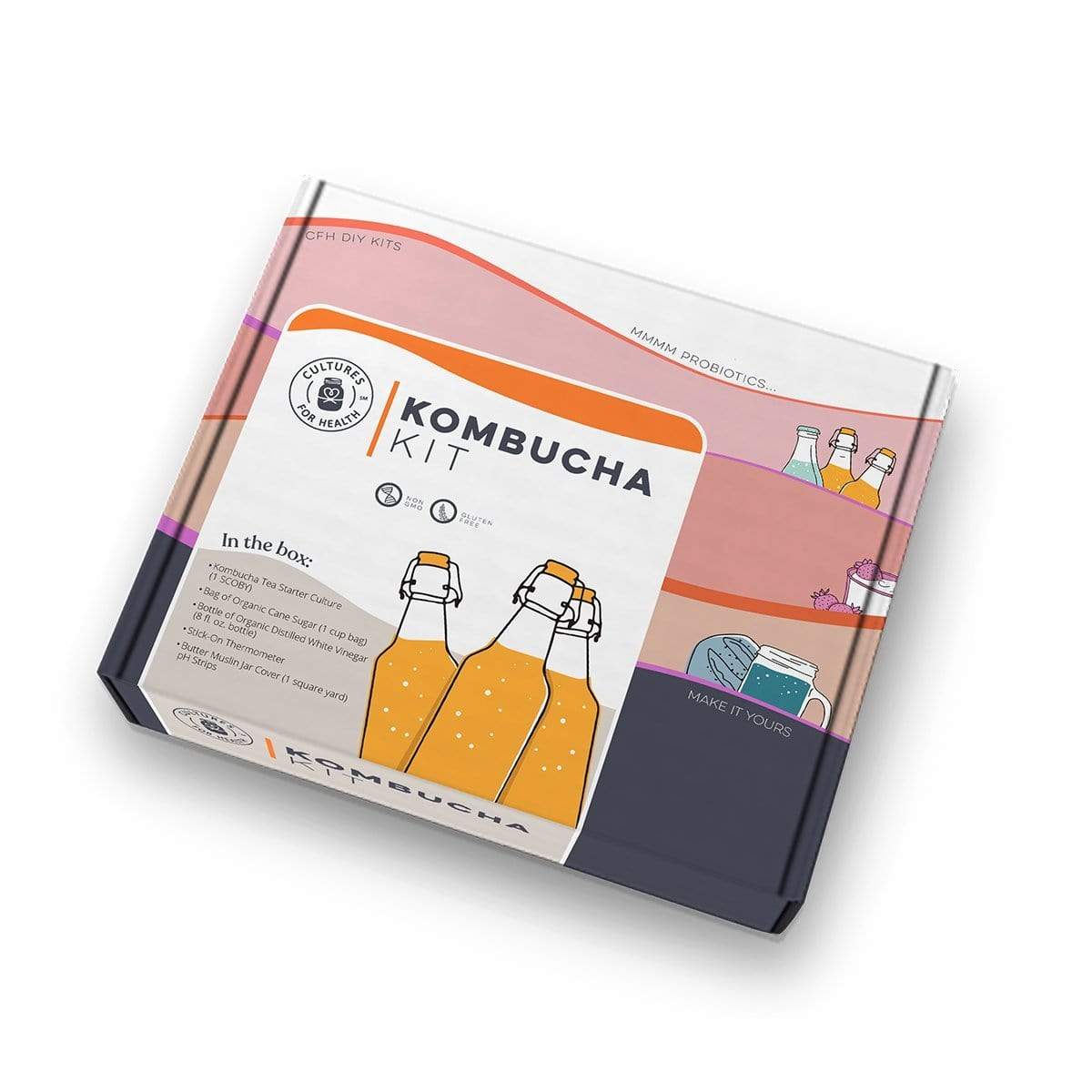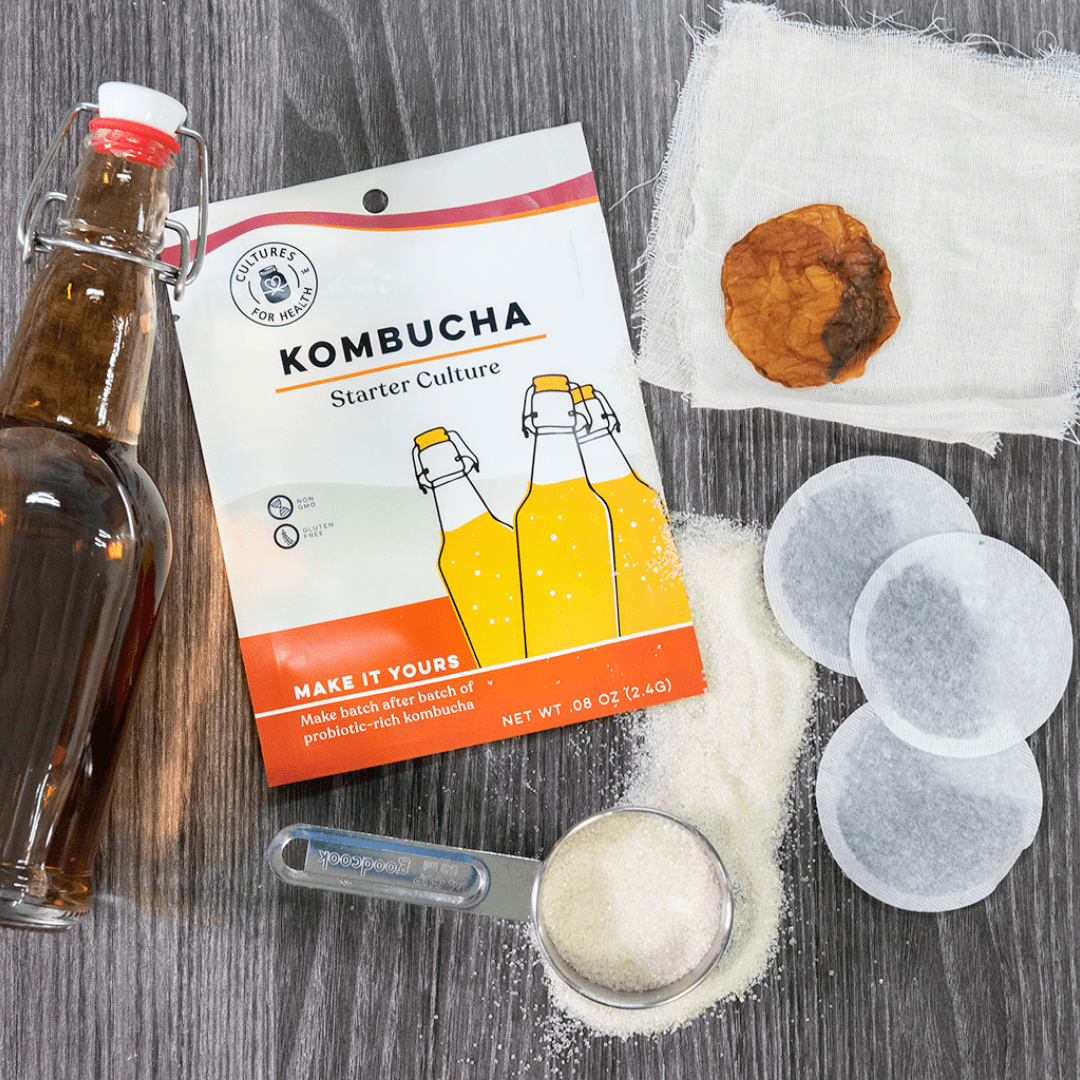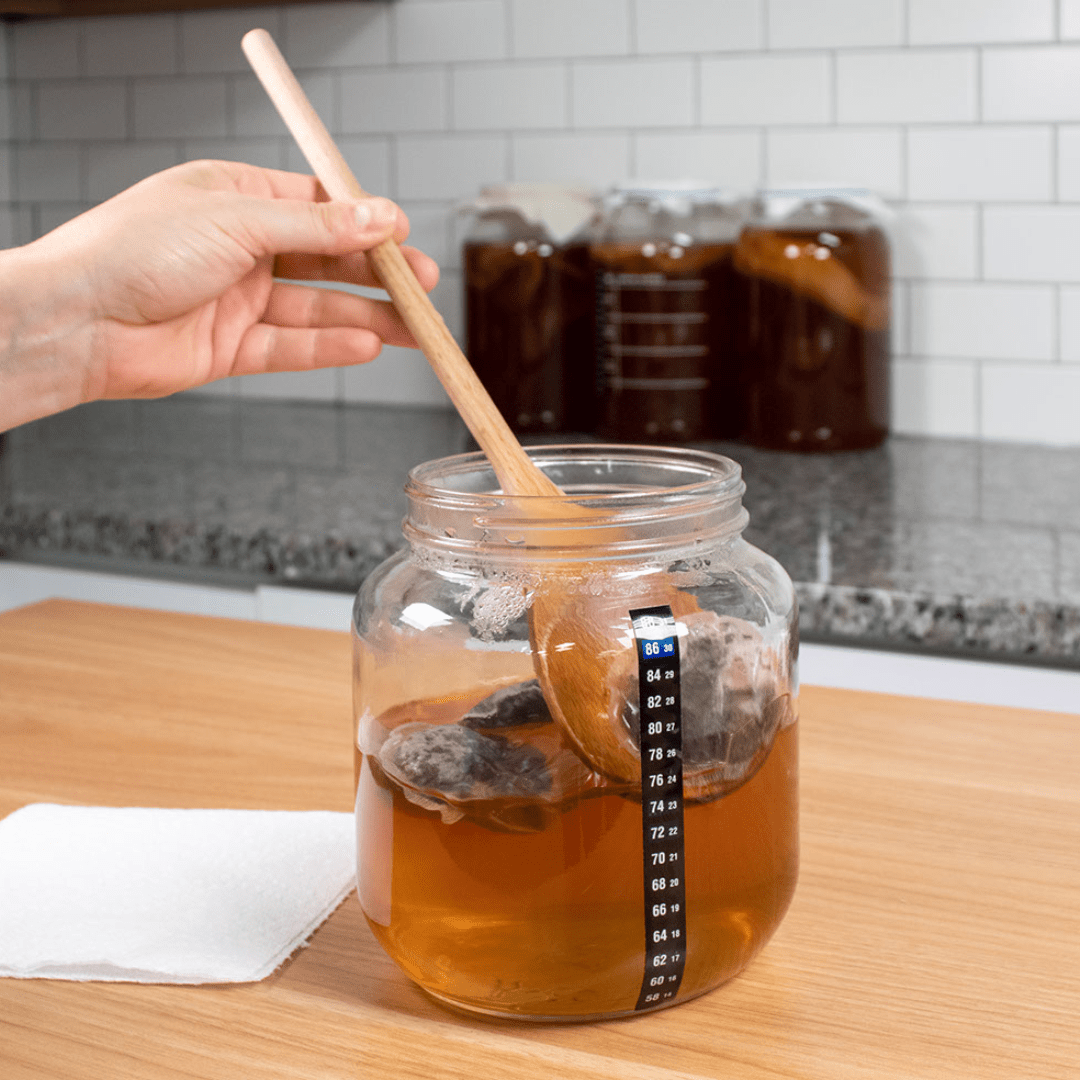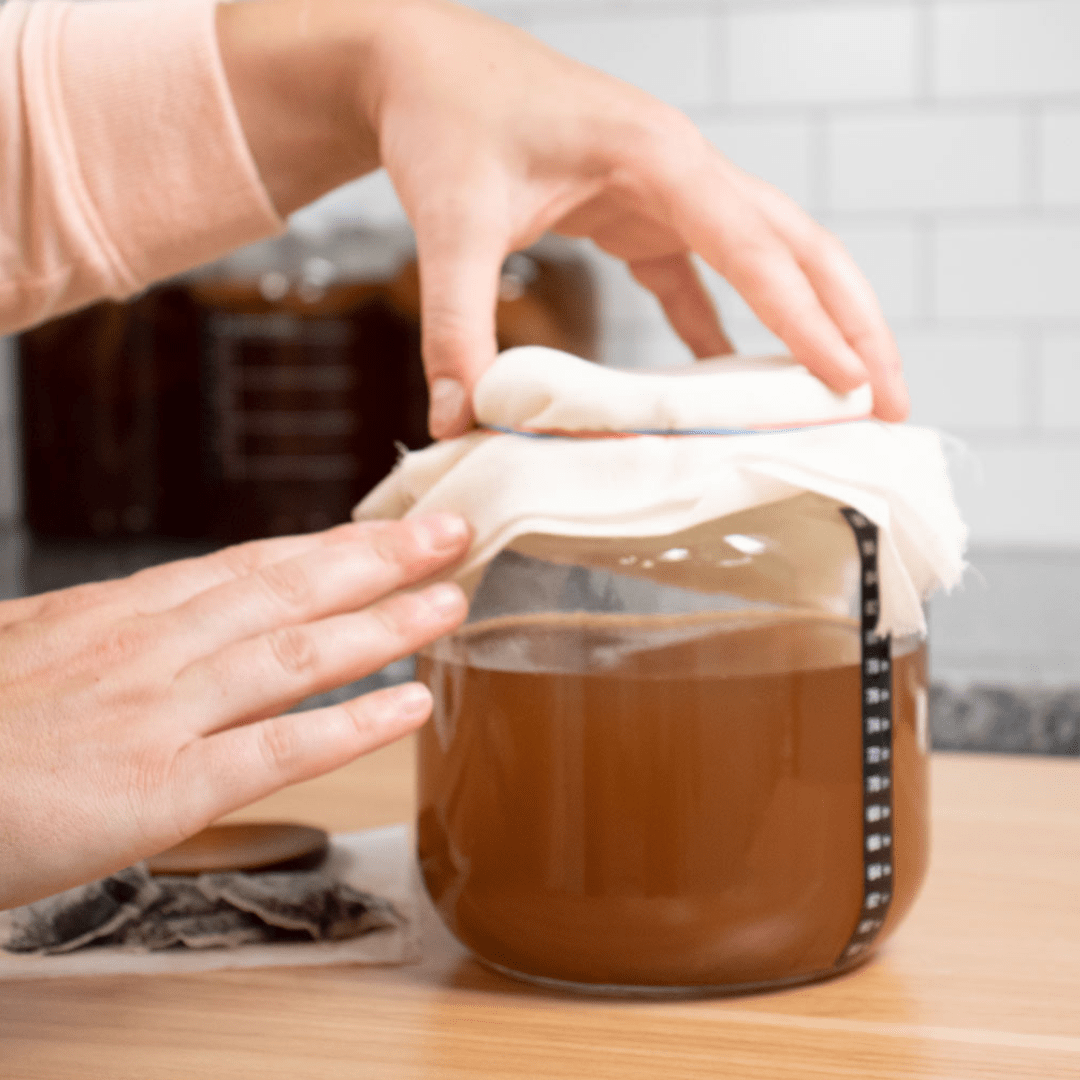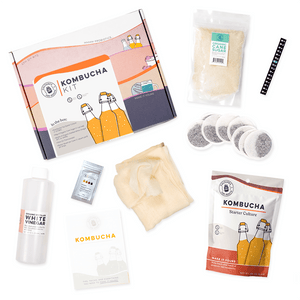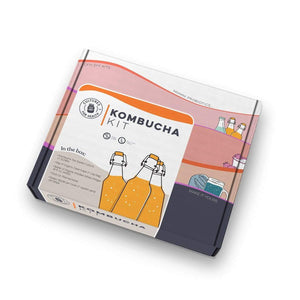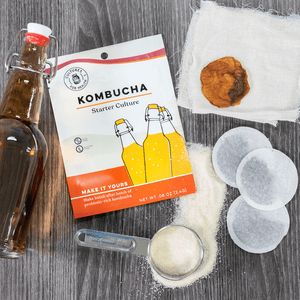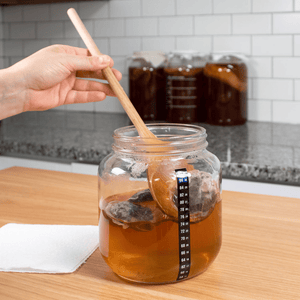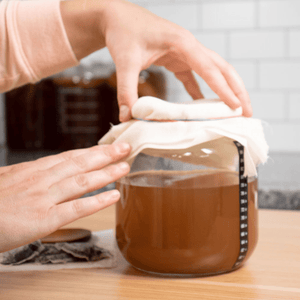
Kombucha, a delightful and fizzy fermented beverage crafted from sweetened tea, provides your palate with an exquisite combination of sweetness and tanginess. Nevertheless, if any kombucha is left to ferment for too long, it will eventually transform into kombucha vinegar, a very acidic form of kombucha.
If your kombucha has become too sour for your liking, don't discard it! Transform it into something even more incredible: vinegar. Making vinegar kombucha is a wonderful way to revive an old-fashioned recipe in only minutes—and the process is so simple you'll have no trouble mastering it at home.
What is Kombucha Vinegar?
Kombucha vinegar is a fermented vinegar made from kombucha and contains a variety of micronutrients and probiotics. It is usually used as a vinegar substitute in cooking, but there are also many health benefits of kombucha. Kombucha vinegar has been linked with improved digestion, a strengthened immune system, and increased energy levels. It is also a great source of probiotics.
Kombucha vinegar is a great way to use over-fermented kombucha. The vinegar has a unique flavor that adds an extra zing to different dishes. It is also full of probiotic goodness and contains a variety of micronutrients that can benefit your health.
Kombucha vinegar can also be used to create fermented foods. It is a great way to preserve foods such as fruits and vegetables. The vinegar helps to create an acidic environment, which prevents the growth of bad bacteria. This makes vinegar kombucha a great way to jumpstart fermentations.
How to Make Vinegar Kombucha

Making vinegar kombucha is pretty simple; in fact, it can easily happen by accident, when kombucha is over-fermented. This occurs when a kombucha has been left to sit for too long and the yeast has become overactive. The vinegar is created when the yeast consumes all the sugars and produces a lot of acetic acid.
Ingredients Needed for Kombucha Vinegar
To make your kombucha vinegar, you'll need a few basic supplies:
-
A wide-mouthed jar (roughly four liters)
-
A rubber band and cloth to go over the jar's opening
-
Bottles and filters for storage
-
A kombucha SCOBY, like this kombucha culture
-
200g sugar
-
12g plain tea
-
2.5L filtered water
Kombucha Starter Kit
Process of Making Kombucha Vinegar
Follow this step-by-step process to make vinegary kombucha.
-
Fill a jar with 500ml of boiling water, then steep your favorite tea bags or place them in a nylon filter bag to facilitate brewing.
-
Allow the tea to brew for around 10 minutes, then discard your tea leaves.
-
Carefully stir in the sugar until it is completely dissolved.
-
To achieve a perfect lukewarm tea, top off the mixture until you reach 3 liters of liquid.
-
Once cooled to room temperature, introduce the kombucha SCOBY and its accompanying liquid culture to your tea.
-
Securely cover the opening of your container with a cloth and an elastic band for added protection.
-
Position in an open, well-ventilated area away from direct light at room temperature, around 68–85°F.
Kombucha Fermentation
-
Allow the vinegar to ferment for at least 70 days to enhance its flavor and acidity, making it even tastier.
-
After ten weeks, carefully remove the SCOBY and strain the kombucha vinegar into a jar with a nylon filter to eliminate particles. Most people try to avoid stirring up the sediment at the bottom, but that’s just a personal preference.
Bottling

-
Fill the clean bottles with the kombucha vinegar, leaving about an inch of headspace at the top.
-
You can just store these bottles at room temperature if you want—it’s already fermented as much as it’s going to.
Top Tips for Optimizing Fermentation
Here are some useful strategies you can employ to ensure your vinegary kombucha ferments to its full potential.
Temperature
Keep your kombucha vinegar at a constant temperature between 77°F and 85°F for the best results. Excellent outcomes can be achieved whether you prefer a higher or lower temperature…though it may take more time to ferment.
Time
To make vinegary kombucha, leaving the SCOBY and culture in the jar for an extended time (i.e., 70 days) is the key. The fermentation process may happen more quickly if the vinegar is exposed to oxygen and on-point temperature.
Flavoring
For added zest and flavor, you can add flavorings such as fruits, herbs, and spices, just like any second fermentation for kombucha. Regarding the sugar component, incorporate it early in your fermentation. This will ensure that these sugars are converted properly during fermentation.
Seven Clever Ways to Use Sour Kombucha Vinegar
Acetic acid is the main component of vinegar kombucha. This vinegar is full of probiotic goodness and makes an excellent substitute for regular vinegar or lemon juice in many of your favorite recipes.
Acetic acid is popular for its powerful health-promoting benefits. When combined with food, acetic acid slows digestion rate and considerably decreases blood sugar levels. Not only that, research has shown that acetic acid can help in decreasing cholesterol levels, hypertension, heart disease risk, and even fighting cancer. Along with its antimicrobial properties, it can be used to effectively treat skin irritations, various infections, and even candida overgrowth.
You may be wondering, how much kombucha should you drink? It will depend on a variety of factors. Depending on your age and current state of health, the amount you consume can vary significantly from someone else. Tailor your consumption for your specific health goals, as well as any limitations with your caffeine tolerance or dietary restrictions related to the type of kombucha you are drinking.
Here are seven creative ways to use vinegar kombucha in your cooking:
Kombucha Salad Dressing
Simply combine vinegar kombucha with oil and your favorite herbs, savory spices, or garlic to create an infusion that can be used for salad dressings or in other recipes. It's a great way to add vinegar flavor without the vinegar taste being too overpowering. Veggies provide fat-soluble vitamins that need a helping hand in making their way to your body. Olive oil is the perfect vehicle for these nutrients, and it even provides you with an extra boost of beneficial bacteria, which helps you digest food better.
Fire Cider
Create a batch of Fire Cider for all your wellness needs. This powerful blend of herbs and spices is known to be immune-boosting and can provide the extra vitality you might be looking for. Plus, it's simple to make—just whip up a mixture in minutes with ingredients from your pantry. Swap out apple cider vinegar with kombucha vinegar for an easy and delicious alternative.
Kombucha Vinegar Gut Shot
A small daily dose of apple cider vinegar or kombucha vinegar, diluted in water or another beverage if necessary, helps to promote general wellness and improve some specific health concerns. Acetic acid aids digestion and helps stabilize blood sugar levels, which is especially beneficial for those with diabetes. It can also lead you to feel more satiated and less likely to overeat. Taking a shot of vinegar or diluting it into your beverage before meals is an easy way to get the recommended daily dose of acetic acid.
Natural Kombucha Hair Rinse
Kombucha vinegar is an ideal natural alternative for a hair rinse. This vinegar has many benefits, such as cleaning, providing deep conditioning, eliminating buildup and scalp itching or dryness, re-balancing the natural pH of your hair, reducing frizz and breakage, and resealing the cuticles. After using kombucha vinegar in your hair rinse, you'll be left with shiny, smooth, and healthy hair.
Makeup Remover or Facial Toner

Kombucha vinegar is becoming a popular natural skincare product due to its antimicrobial and antifungal properties, which can help heal acne or other infections. It can even be used as a facial toner; however, for those with very dry skin, it should be diluted half-and-half with water. Caution should always be taken when using kombucha vinegar around the eyes, due to its astringent nature.
Baking with Kombucha Vinegar
Perfect for anyone looking to maintain a gut-healthy lifestyle, kombucha vinegar is the perfect addition to making healthier desserts and baked goods that are still delicious. It pairs wonderfully with other ingredients like cream cheese, chocolate, and peanut butter—endless possibilities! Be sure to get creative in the kitchen and try this intriguing new ingredient; it's sure to be worthwhile.
Kombucha Marinade
Kombucha vinegar is an excellent marinade ingredient due to its nutrient-rich properties and perfect acidity levels. It tenderizes meat, and its fermented taste adds a unique dimension of flavor to your dish. Its active enzymes help break down food proteins, leading to richer textures and an even deeper flavor. With just a few simple ingredients and some creativity, you can create a delicious marinade that will leave your guests asking for more.
Using Kombucha Vinegar for Laundry
Kombucha vinegar is a great and eco-friendly alternative to traditional laundry detergents, and can even help improve the condition of your clothing. Not only will using it help brighten colors, but it aids in removing mineral deposits and softening fabric for a fresher, cleaner feel. Kombucha vinegar is also fairly simple to use. Just follow the normal clothes-washing process and add ⅓–½ cup of your prepared kombucha vinegar to each load along with your normal detergent. You'll be amazed at the results.
Final Thoughts on Kombucha Vinegar
In conclusion, vinegar kombucha is a versatile, nutritious condiment with numerous potential health benefits. Not only does it add a zesty taste to many recipes, but its probiotic content also helps improve digestive health and can even support a stronger immune system. Additionally, making homemade kombucha vinegar is relatively easy and cost-effective. With all these advantages, kombucha vinegar is an excellent option for those looking to make better dietary choices. We highly encourage everyone to try out this powerhouse of nutrients by creating their own homemade kombucha vinegar.













